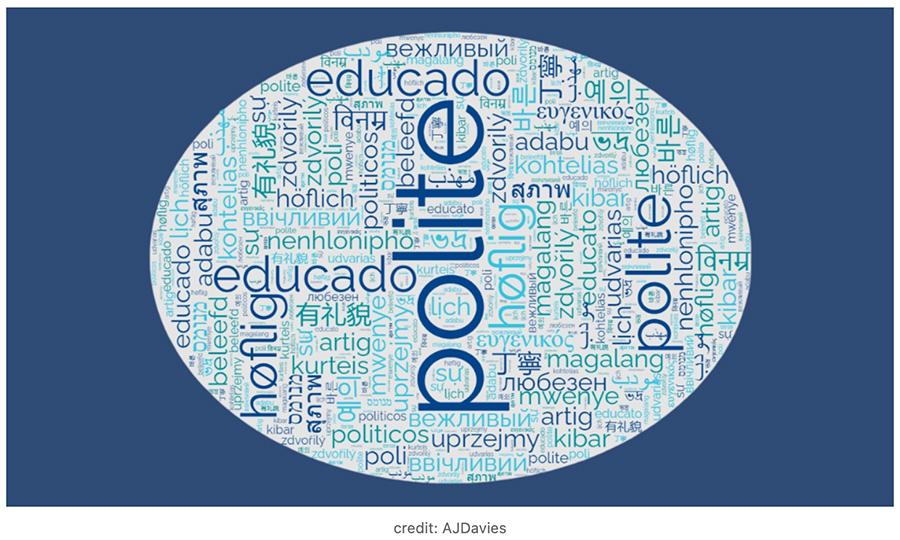It Costs You Nothing
When I was growing up in the suburbs of New York City, even though the world’s financial center has a reputation for rudeness, my parents frequently reminded me that I should be polite and respectful to everyone, no matter who they were.
“It doesn’t cost you anything to be polite,” my mom used to say.
Recently, I learned that there’s a Spanish phrase that’s related to this idea: “Lo cortes no quita lo valiente,” which loosely translated means “courtesy detracts not from bravery.”
And then I found that the Japanese word 丁寧な / (“teineina”) translates to “polite,” “well-mannered,” and “respectful,” and that in general there’s a strong expectation in Japanese culture that everyone will do their best to be polite, well-mannered, and respectful.
And Arabic and Middle Eastern cultures – world famous for their hospitality – have a word, “Adab” { أدب), which in the context of behaviors, refers to etiquette: “refinement, good manners, morals, decorum, decency, humaneness”.
<p”>Based on these findings, I’m going to go out on a limb here and make the claim that every culture in the world has expectations and prescriptions around politeness and respect. And many will add that it costs you nothing to be polite, decent, civil, courteous, humane, and respectful.
And yet, we keep hearing about people who are not being polite. In fact, based on our research here at The Center for Respectful Leadership, people are being extraordinarily disrespectful to each other right now. From what we can tell, public disrespect in the United States hasn’t been this common since the height of the Vietnam War. Many of us find ourselves reacting by shaking our heads and muttering, “that’s not how it used to be.”
But a quick review of the history of war and conflict makes it clear that human beings have always treated each other badly despite exhortations to be polite and respectful. What’s different now is that we’re constantly hearing about conflict and disrespect on the news, in our social media and from colleagues, friends, and family.
This is because conflict and disrespect “drive eyeballs” as they say in the digital media industry. Heck, even before online and social media news sites were invented, news editors would proclaim, “If it bleeds it leads,” in other words: conflict sells newspapers.
This doesn’t mean we should throw up our hands and give in, assuming that that’s just the way it is and there’s nothing we can do about it. Rather, if each of us were to make a personal commitment to be polite and respectful, and not just when it’s easy to do so but even when someone else is behaving disrespectfully, then we can truly make a difference in the world, one little interaction at a time.
This is because politeness and respect are contagious. If I treat you with respect, especially in ways that you consider respectful, it’s more likely you’ll treat me with respect, and so on. Recentdiscoveries in neuroscience strongly supports the concept that respect begets respect.
So, although our parents can occasionally be wrong, when they instruct us to be polite and respectful, they couldn’t be more on target. Let’s all heed my mom and to parents all over the world when they say, “Being polite and respectful costs you nothing.”
Got challenges in your workplace with respect? We can help at hello@RespectfulLeadership.org.



